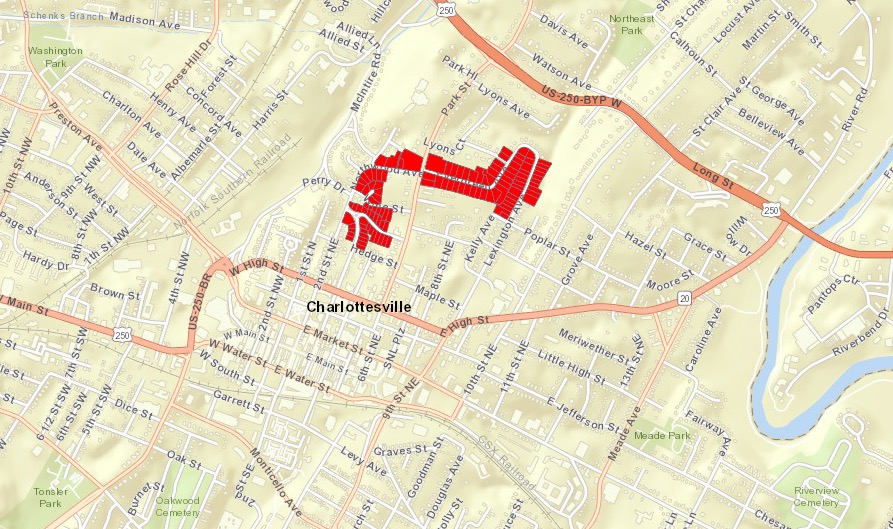Mapping racial inequities in Charlottesville from past to present
In April of 1968, President Lyndon B. Johnson signed into law the Civil Rights Act of 1968 which included Title VIII, more commonly known today as the Fair Housing Act. Since that day, it has been illegal to restrict housing—sales, rental, or financing—upon race, religion, and national origin. But the remnants of a federally supported racist structure remain to this day. While it is against federal law to enforce deed restrictions that prohibit ownership based on race, there are more than 3,000 properties in the City of Charlottesville that have had such covenants placed in their deeds over the years.
“If you aren’t outraged, you aren’t paying attention.”
Beginning in the late 1800s, Charlottesville and Albemarle County mirrored most of our country as white residents began “protecting” their neighborhoods by pledging never to sell or rent to minority families. Racial covenants were on 300 properties by 1933. By 1940, that number had doubled, and in the 1940s that number would quadruple as more than 1,100 additional properties received such deed restrictions.
In the summer of 2018, Jordy Yager received a grant from the Charlottesville Area Community Foundation to fund a project for the Jefferson School African-American Heritage Center (JSAAHC) that maps inequities in Charlottesville from past to present. Yager and a crowdsourced team of community volunteers began scanning, cataloging, and mapping the properties whose deeds included these racial covenants.

Many community members may ask the importance of this research, as it has now been more than 50 years since the restrictions have been enforceable. However, despite the illegality of denying housing based on race, the language of the deeds remains in many cases, and the deed serves as a reminder of our racist history, upheld by legal support for many decades.
At Nest, we are teaming up with Mapping Cville to facilitate removal of these covenants from deeds. As a company and individuals who work daily in selling real estate, Nest and our agents are committed to helping, even in small ways, to bring some reconciliation between our discriminatory past and the inclusive community we know can exist here in Central Virginia. We recognize the injustices of our past and the financial and emotional impact the policies have had—and continue to have—on a large part of our community.
In the coming months, we at Nest will continue to discuss how individuals can help Jordy and Mapping Cville. We’ll talk about the effect of Federal redevelopment efforts during the 1960s on areas like Vinegar Hill. And we hope to spark broad conversations about what we need to do to truly make housing affordable and available to all people. We hope that you will join us for this discussion.
